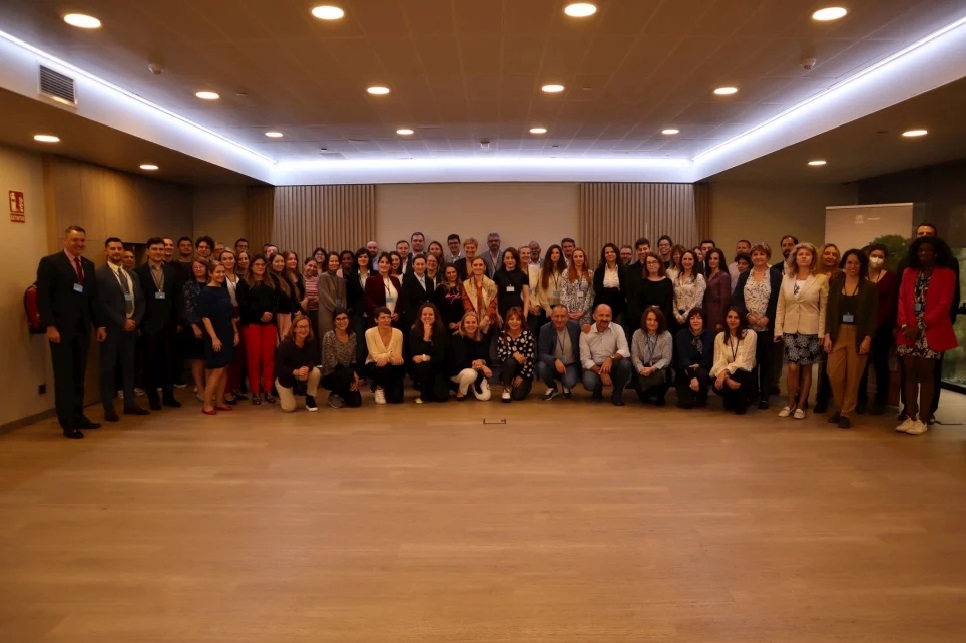
Participants at UNHCR Regional consultation on ‘Good Practices on Identification and Protection of Stateless Persons in Europe’, Madrid, 20-21 October. © UNHCR/Valeriia Cherednichenko
MADRID – UNHCR, the UN Refugee Agency, hosted a two-day regional consultation in Madrid on the identification of stateless people and statelessness determination procedures on 20 and 21 October. The consultations brought together 31 European countries to help work towards the common goal of eradicating statelessness.
The broad participation at such an event, with both European Union (EU) and non-EU countries, demonstrates the sustained commitment of European States towards addressing statelessness. The consultations provided a platform for technical experts to share experience and good practices and inspire other countries in their efforts to uphold the 1954 Convention relating to the Status of Stateless Persons.
“It is extremely encouraging to see such a high level of engagement from nearly 40 Government experts across Europe, all committed to pursuing efforts to better identify and protect stateless people. There is a wealth of expertise and experience as well as many good practices that can be replicated within the region and beyond,” said Pascale Moreau, Director for the UNHCR Regional Bureau for Europe.
The key focus of the event was the establishment and improvement of Statelessness Determination Procedures, which help States identify who is stateless within their territory and ensure they enjoy the rights to which they are entitled.
Globally, 28 countries currently have a Statelessness Determination Procedure in place, including 15 countries in Europe. This number has nearly doubled across the continent since the launch of UNHCR’s #IBelong Campaign in 2014, evidencing European states’ commitment to tackling this problem, as illustrated by the pledges made at the High-Level Segment on Statelessness in 2019. It is hoped that these consultations will galvanize further efforts towards the protection of stateless people in Europe, the implementation of pledges, and the eventual eradication of statelessness.
Across Europe, hundreds of thousands of people are estimated to be stateless or have their nationality undetermined. Many in these situations are precluded from basic rights and services, often not allowed to go to school, see a doctor, get a job, open a bank account, buy a house, get married or move freely. They can face a lifetime of obstacles.
The Consultations were held ahead of the 8th anniversary of UNHCR’s #IBelong Campaign to end Statelessness on 4 November.
UNHCR is currently serving as the Secretariat to lead the establishment of the Global Alliance To End Statelessness, which will seek to build on the concrete gains generated by the #IBelong Campaign and serve as a platform to increase collective advocacy efforts, catalyze political commitments, and accelerate the implementation of concrete solutions to statelessness.
Μοιράσου το στο Facebook Μοιράσου το στο Twitter